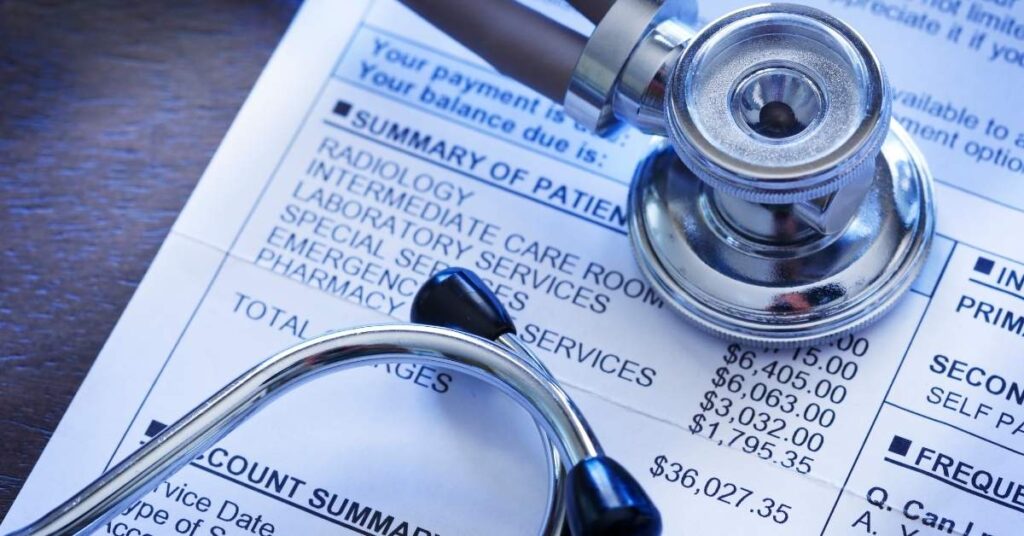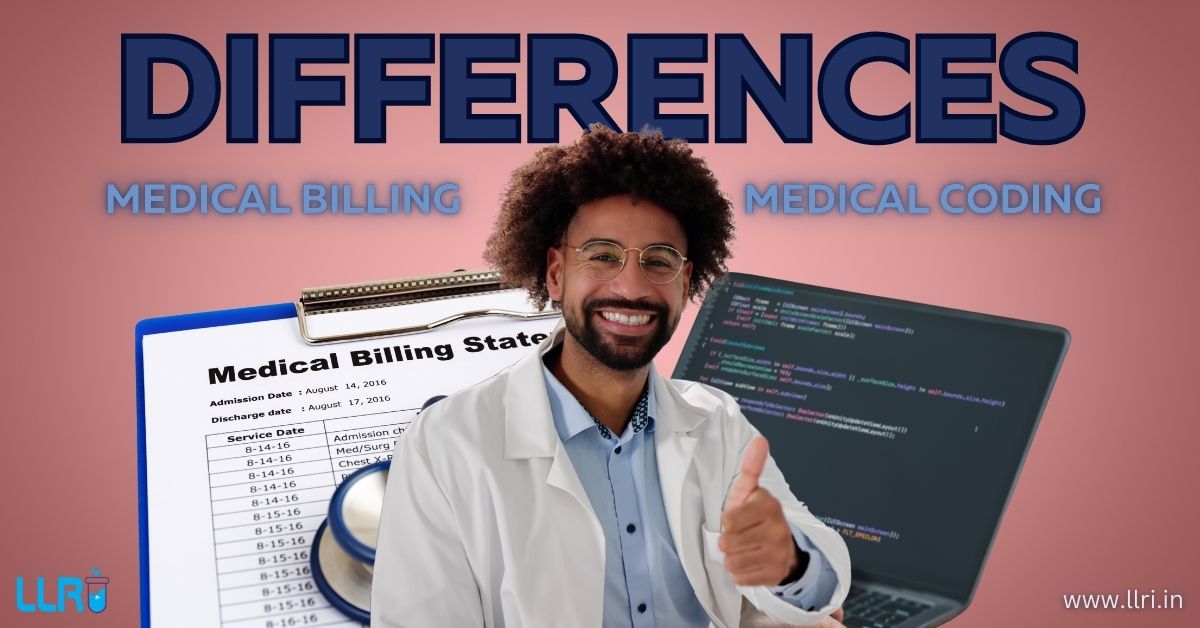Difference Between Medical Billing and Medical Coding: The healthcare system is a complex network of roles, with medical billing and medical coding playing very integral parts.
Learning the difference between medical billing and medical coding can illuminate career paths, responsibilities, and the qualifications required for each role. If you’re considering entering this field, here’s a detailed look at these professions, their key differences, and career growth opportunities.
What Is Medical Billing?
Medical billing is the process of translating healthcare services into financial claims. Billers act as the bridge between healthcare providers and insurance companies, ensuring that providers are reimbursed accurately for their services.
Responsibilities of a Medical Biller
- Submitting claims to insurance companies.
- Verifying patient insurance details.
- Resolving billing disputes and ensuring timely payment.
- Handling patient billing inquiries and payment plans.
To answer, “what does a medical biller do?”, the role involves financial accuracy and efficient communication with both patients and insurers.

What Is Medical Coding?
Medical coding is the practice of converting medical diagnoses, treatments, and procedures into universal alphanumeric codes. Coders ensure the accuracy of patient records and aid in the healthcare reimbursement process.
Responsibilities of a Medical Coder
- Assigning appropriate codes to medical diagnoses and procedures.
- Reviewing physician notes and patient records.
- Ensuring compliance with healthcare regulations.
- Collaborating with medical billers for accurate claim processing.
When discussing “what does a medical coder do?”, it’s a role requiring a deep understanding of medical terminology and coding systems like ICD-10, CPT, and HCPCS.
Difference Between Medical Billing and Medical Coding
Here are some important points to help you understand the difference between medical billing and medical coding involves recognising their unique roles:
| Features | Medical Billing | Medical Coding |
| Primary Function | Processing payments and claims. | Translating medical data into codes. |
| Interaction | Direct interaction with patients and insurers. | Limited interaction, mainly with records. |
| Skill Set | Financial management, communication. | Analytical skills, attention to detail. |
| Outcome Focus | Ensuring financial accuracy. | Ensuring data accuracy. |
| Career Path | Billing specialist, insurance coordinator. | Certified coder, auditing specialist. |
5 Key Points to Distinguish Between Medical Billing and Coding
- Focus of responsibilities: Medical billers concentrate on financial transactions, while medical coders ensure the accuracy of healthcare data.
- Interaction with stakeholders: Medical billers engage directly with patients and insurers, whereas coders work behind the scenes.
- Skillset requirements: Medical coders need analytical and technical expertise, while billers require communication and negotiation skills.
- Career opportunities: Both fields offer rewarding paths, but coding may lead to auditing or specialization roles, while billing can progress to administrative leadership.
- Training and certification: The requirements to be a medical coder often include certification in ICD coding, while requirements to be a medical biller may focus on billing software proficiency.
How to Become a Medical Biller or Coder?
The path to these careers begins with specialized training and certification. Institutions like the Clinical Research Training Center offer courses that combine theoretical and practical knowledge.
Steps to Become a Medical Biller
- Obtain a high school diploma or equivalent.
- Enroll in a medical billing course.
- Gain certification, e.g., Certified Professional Biller (CPB).
- Acquire practical experience through internships.
Steps to Become a Medical Coder
- Complete a certification program in coding (e.g., CPC or CCS).
- Familiarize yourself with coding systems and medical terminology.
- Gain practical experience through an internship or entry-level job.
For those considering advanced healthcare roles, a clinical research course or certification from a clinical research institute can expand career horizons.
Why Choose a Career in Medical Billing and Coding?
Healthcare is a growing industry, and administrative roles like medical billing and coding are integral to its success. A quote by the U.S. Bureau of Labor Statistics states:
“Employment of medical records and health information specialists is projected to grow 7% from 2021 to 2031, faster than the average for all occupations.”
With minimal barriers to entry and numerous growth opportunities, these roles are excellent options for individuals seeking stability and purpose in their careers.
Clinical Research and Its Connection to Billing and Coding
Those pursuing a career in medical billing or coding can also explore the field of clinical research. Certifications like a PG Diploma in Clinical Research from the best institute for PG Diploma in Clinical Research can complement coding expertise by offering insights into regulatory compliance and clinical trial management.

On A Final Note…
The difference between medical billing and medical coding lies in their distinct roles, yet they are complementary parts of healthcare administration. By understanding the responsibilities, qualifications, and career prospects of each, you can make informed decisions about your future.
Institutes like LLRI not only offer specialized courses in billing and coding but also provide opportunities to expand your expertise with clinical research training. Whether you’re drawn to the precision of coding or the interactive nature of billing, both careers promise growth and fulfillment in the healthcare sector.
FAQs
-
What are the responsibilities of a medical coder?
Medical coders translate healthcare diagnoses and procedures into standardized codes, ensuring the accuracy of medical records and facilitating insurance claims.
-
What are the responsibilities of a medical biller?
Medical billers manage claims processing, resolve billing discrepancies, and interact with insurance companies and patients for payment settlements.
-
How to become a medical coder?
Start by enrolling in a recognized coding course, such as those offered by a clinical research training center, and obtain certifications like CPC or CCS.
-
How to become a medical biller?
Complete a billing-focused course, earn relevant certifications like CPB, and gain hands-on experience through internships.
-
What is the difference between medical billing and medical coding?
The primary difference lies in focus: billing deals with financial aspects, while coding involves translating medical data into codes.
-
What is the clinical research course fees in India?
Fees vary depending on the institution. However, leading institutes like LLRI offer competitive pricing for their clinical research courses, ensuring value for aspiring professionals.

